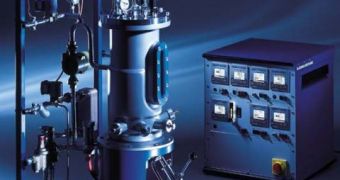A group of five specialists from the Massachusetts Institute of Technology (MIT) has recently founded a start-up company, known as Ginkgo BioWorks, with the stated goal of making synthetic biology systems as easy to produce as bread. Its headquarters are located in Boston, and the team says that its first order of business will be to start assembling biological parts such as the strings of specific genes for industrial and academic use, Technology Review reports.
“Think of it as rapid prototyping in biology – we make the part, test it, and then expand on it. You can spend more time thinking about the design, rather than doing the grunt work of making DNA,” one of the company's Co-founders, Reshma Shetty, explains. For example, the expert adds, assembling two pieces of DNA together in a specific pattern may cost more than $100, as a base price. Of course, more intricate work means that the price tag goes way up as well. The team says that research groups around the world would benefit from its company, in that they would no longer have to spend so much time making the constructs themselves. Rather, they could just order them from Ginkgo BioWorks.
The goal of synthetic biology is not necessarily to create entirely new organs, to be used in transplants and such. Rather, it aims at designing and constructing basic organisms, which are able to perform the same tasks as their cousins in the “wild.” For instance, research efforts have thus far created microbes that are able to synthesize biofuels and drugs. This comes in very handy to experts running tests on the effects of various drug therapies on specific medical conditions. What sets the Boston-based company apart from its competitors is the fact that it creates functional genetic pathways from synthesized pieces of nucleic acid.
Other endeavors only synthesize the pieces of DNA. “I'm interested in transitioning biology from being sort of a craft, where every time you do something it's done slightly differently, often in ad hoc ways, to an engineering discipline with standardized methods of arranging information and standardized sets of parts that you can assemble to do things,” MIT research scientist Tom Knight, a company co-founder, and the creator of the technology that will be used at Ginkgo BioWorks, explains. In his DNA-combining method, called BioBricks, each piece of DNA is tagged with connectors at both ends, which allow for the strands to be quickly interchanged or disassembled.

 14 DAY TRIAL //
14 DAY TRIAL //